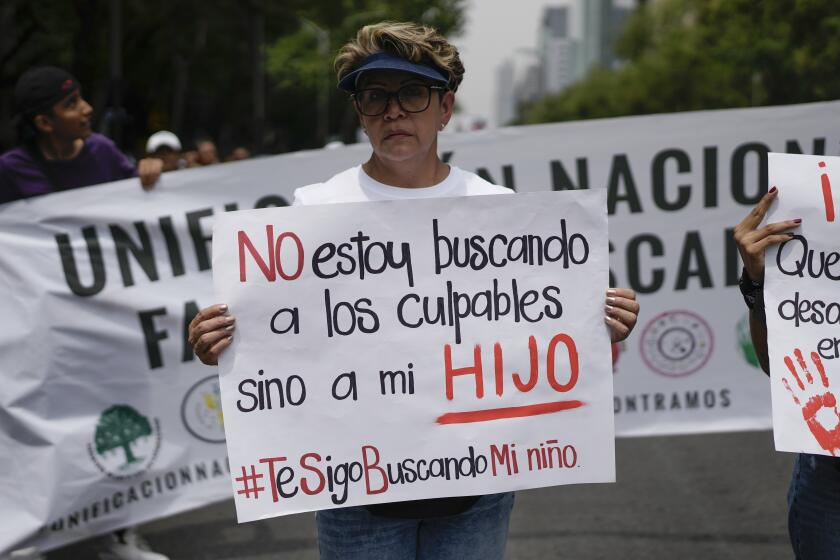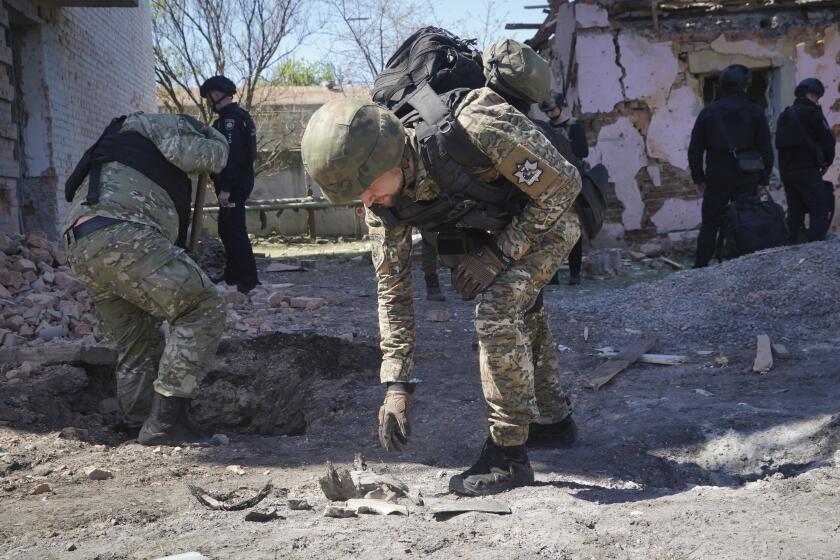Bankers Pledge Expanded Debt Relief
World finance leaders agreed Sunday on the need to continue canceling the debts of poor countries and to provide more aid in the form of grants rather than loans, but critics said their pledges fell short of what was needed.
The International Monetary Fund and the World Bank concluded two days of deliberations by declaring their intent to expand an existing debt-relief program and secure more funds to help developing countries achieve poverty-reduction goals.
The recommendations, endorsed by members of a joint policy-making committee, are scheduled to be taken up by the full membership of the two institutions in the fall.
Nigeria Finance Minister Ngozi N. Okonjo-Iweala said Development Committee members wanted to extend the Heavily-Indebted Poor Countries initiative beyond its scheduled “sunset” date of Dec. 31 so more countries could participate.
So far, the program has provided about $50 billion in debt relief to 27 impoverished countries, most of them in sub-Saharan Africa. But an additional 11 potentially eligible countries have been left on the sidelines, in some cases because of armed conflict or political instability that could be resolved.
“Everybody in the committee was agreed that this is a very urgent problem,” Okonjo-Iweala said. “The commitment is still there.”
Panel members also embraced a U.S.-backed proposal to provide more future development aid in the form of grants requiring no repayment, instead of extending new loans that perpetuate the cycle of indebtedness.
But they did not agree on the optimal level of grant financing, a subject of considerable debate among big lenders.
The World Bank has expressed concern about the effect of more extensive debt cancellation or grant substitution on its ability to use debt repayments to make new loans to deserving countries.
“There’s no question that for the poorest countries that cannot repay their existing obligations ... grants are the preferred source,” said World Bank President James Wolfensohn. “The only debate at the moment is to what level do you go into grants.”
The panel called on the developed world to do more to help poor countries make progress toward poverty reduction, warning that most of the Millennium Development Goals endorsed by global leaders four years ago were unlikely to be met by the target date of 2015.
The millennium objectives include reducing global poverty by half, achieving universal primary school education, promoting gender equality, reducing child mortality, improving healthcare and preventing environmental degradation.
Despite the official declarations of concern and determination, some independent relief organizations said they were unimpressed by the outcome of the spring meetings.
On a 1-to-10 scale, “I’d give them a seven for rhetoric and a one for action,” said Oxfam International policy advisor Max Lawson, who criticized the institutions for not making a more explicit connection between debt cancellation and poverty reduction.
“They’ve made no commitment to link debt relief to the Millennium Development Goals,” Lawson said. “They’re two very separate things in the mind of the Bank and the Fund.”
Earlier Sunday, even Wolfensohn was lamenting the difficulty of getting rich countries to back their words with deeds.
He said it had been difficult to persuade wealthy nations to pony up the $800 million a year needed for a “fast track” demonstration project to help 10 poor countries hire more teachers and pay for other educational improvements.
“People were saying, ‘Look, I’ve already given at the office. I don’t need to give you any more,’ ” Wolfensohn said.
Wolfensohn accused the international community of getting its priorities backward, noting that global defense spending runs about $900 billion annually, farm subsidies in wealthy nations about $300 billion, and development assistance for poor countries only $60 billion.
“That seems to me to be the most nonsensical thing you could imagine,” Wolfensohn said. “If we spent $900 billion on development, we probably wouldn’t need to spend more than $50 billion on defense.”
Although rich countries have stepped up their assistance to the world’s poor, they are still spending far less than they should, according to Third World advocates.
For three decades, the United Nations has encouraged wealthy nations to contribute 0.7% of their gross national incomes to development assistance. Last year, 22 rich countries surveyed by the Organisation for Economic Co-operation and Development fell far short of the mark: Aid totaled $68.5 billion, or 0.25% of their combined incomes.
The United States was the world’s biggest donor in dollar terms, but the stingiest when judged by the U.N. standard: Its $15.5-billion contribution amounted to 0.13% of the nation’s income. The most generous donor was Denmark, which allocated $1.6 billion, or 0.96% of its income, to development assistance.
On Sunday, Norwegian International Development Minister Hilde Johnson prodded the United States and other Group of Seven industrial democracies to join her country and four others in “the more important and exclusive club of the G-0.7.”
She had no immediate takers.
More to Read
Start your day right
Sign up for Essential California for news, features and recommendations from the L.A. Times and beyond in your inbox six days a week.
You may occasionally receive promotional content from the Los Angeles Times.






